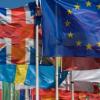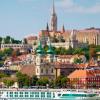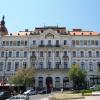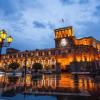Armenia Model European Union 2016 is a youth project aiming to increase the knowledge of participants about the interrelations of national and Euro
Once upon today… in Europe
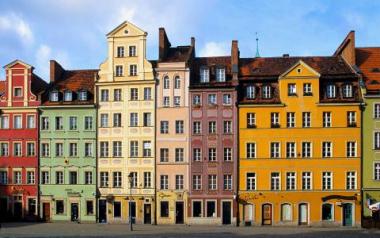
What if it was all just a very good story? Half true, half made up, partly touching on our personal memories and experiences, and partly reflecting the history of our communities and societies. With the project “Once upon today…” we are inviting participants to think about history, memory, and identity in this imaginative way. Not as something given, but as crafted stories…. gripping stories.
In 2016, “Once upon today.. in Europe” focuses on issues of belonging and identity in Europe: What narratives about Europe are prevalent in different local, national or other commemorative cultures? How do they end up being what they are? Which aspects are suppressed and which ones highlighted? And how can institutions for history education and active citizenship deal with these questions in a way that brings people together? With regard to these questions, new methods such as digital storytelling will be applied.
The training consists of two parts.
During the first part, 29 participants from Estonia, Germany, Moldova, Poland, Romania and Ukraine will intensively deal with historical narratives about Europe that exist in different local, national or other commemorative cultures. During this training from April 15-21, 2016, they will discuss these issues, exchange their experience and methods and develop new approaches.
After the training, participants will use this expertise to carry out small projects with young people to discover hidden and interesting stories in their home towns. Up to four young people from each country and their trainer (hence a former participant of the international training) will have the possibility to take part in an international youth meeting in Krzyżowa (03.-08.10.2016).
“Once upon a time…” – this is how fairy tales start. These words sound so familiar to most people as fairy tales have been passed on from generation to generation, told and retold. When people talk about history, memory and identity, something very similar happens. They constantly tell a story about themselves, the communities and states they live in.
These so called narratives help people make sense of reality and they are made up of diverse facts, myths, official commemoration and personal memories. Like any other story, they are constantly shaped and reshaped through communication and reflect the values, interpretations and political objectives of the communities and people who share it.
Thus, any narrative could start like a tale in present: „Once upon today…in Europe.“
During the meeting youth workers will work on the linking points between their own biographies and the history of the countries they live in. The project encourages participants to reflect about different narratives considering the background of their individual identities, biographies, experiences and memories.
It is the project’s goal to initiate a transnational dialogue and allow for a deeper understanding of perceptions and interpretations of past and future in different countries. Additionally the exchange encourages to become clearer about questions of belonging in European societies that are shaped by diversity as well as to develop understanding and tolerance among people with different national, ethnical and religious backgrounds.
Therefore, it will also be important to address so called blank spaces in the collective memory, e.g. stories that are not told or not heard.
As participants come from different communities, countries and professional backgrounds, they will exchange their experiences in the field, try new methods and develop new approaches for their educational work with young people. Those methods and selected results of the workshops will be shared on an internet blog and regularly be renewed.
ITEMS ON THE AGENDA
Lectures and discussion forums
Excursion to the European Capital of Culture 2016, Wrocław
Workshops
Micro projects
This project is financed by the Erasmus+ Youth in Action Programme.
– Participation fee (covers accommodation, full board and all programme activities)
Participants from Germany: 90 EUR / Estonia, Poland: 50 EUR / Moldova, Romania, Ukraine: 30 EUR
– Travel costs: For participants from Germany, Estonia, Moldova, Romania and Ukraine can be reimbursed up to 275 EUR per person, for participants from Poland up to 180 EUR of the economy class travel costs.

